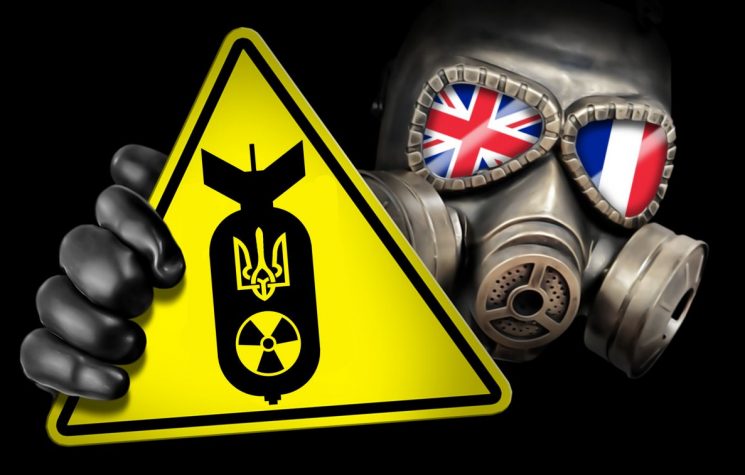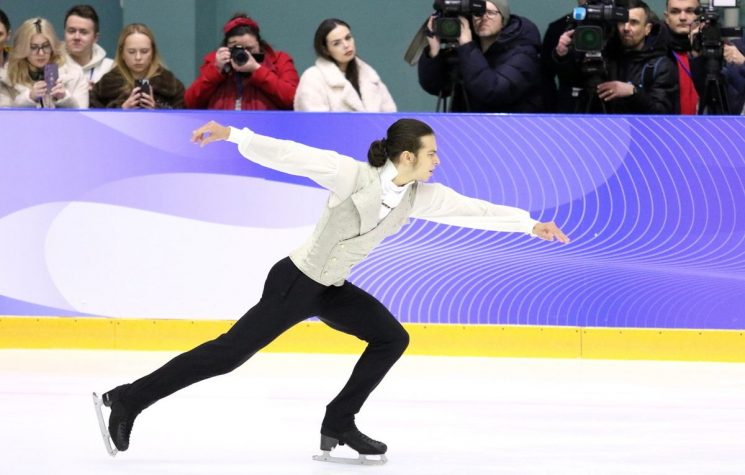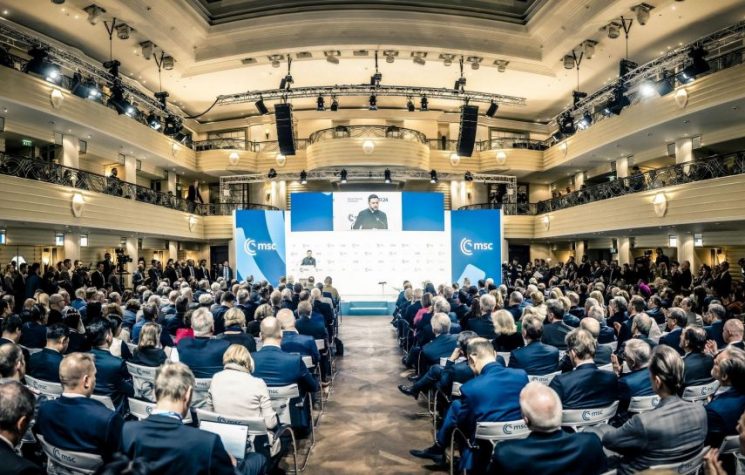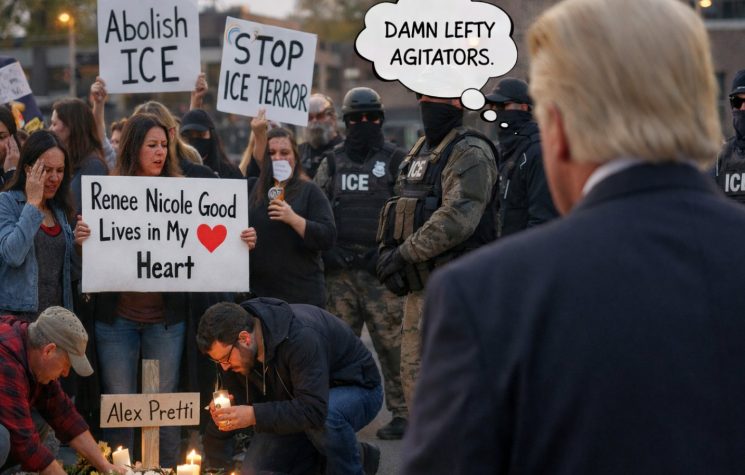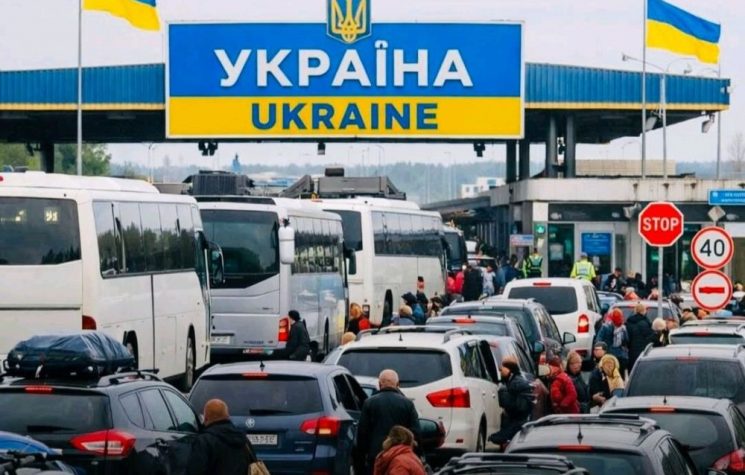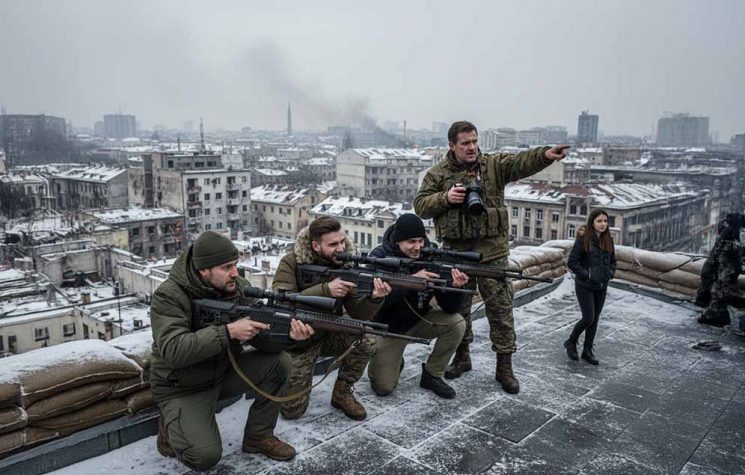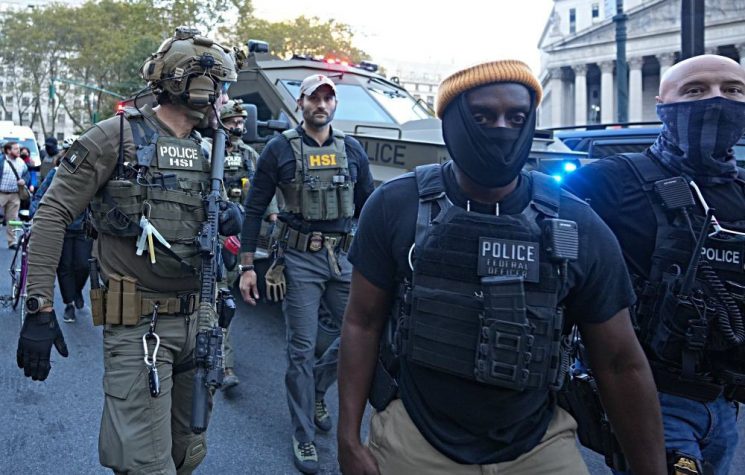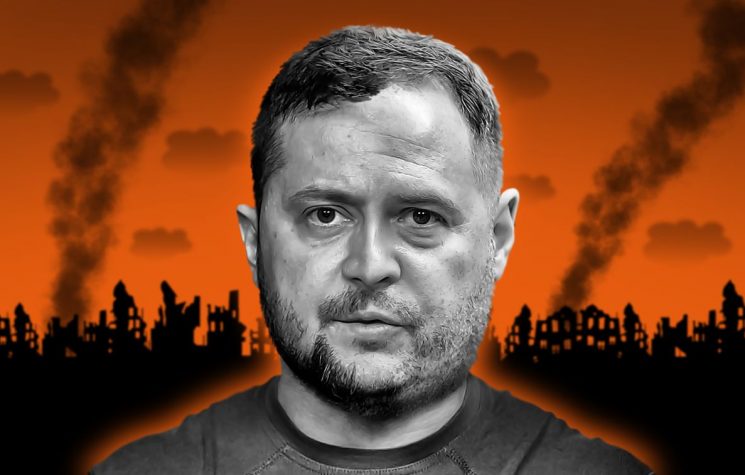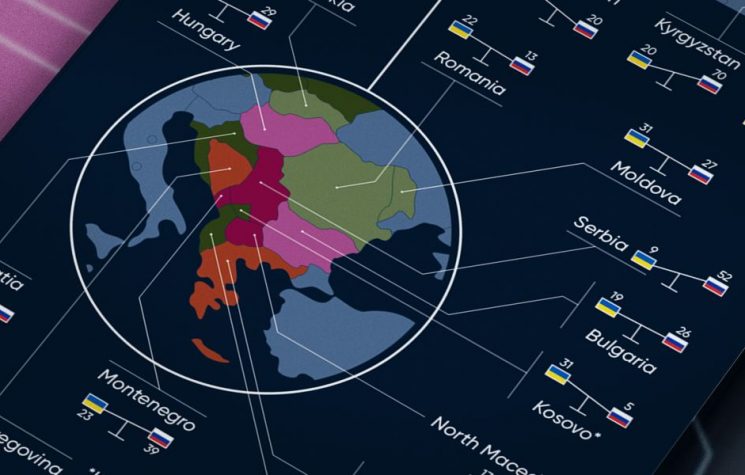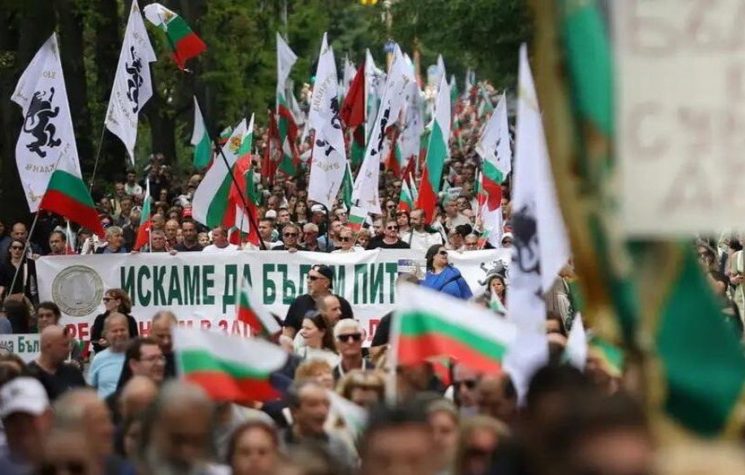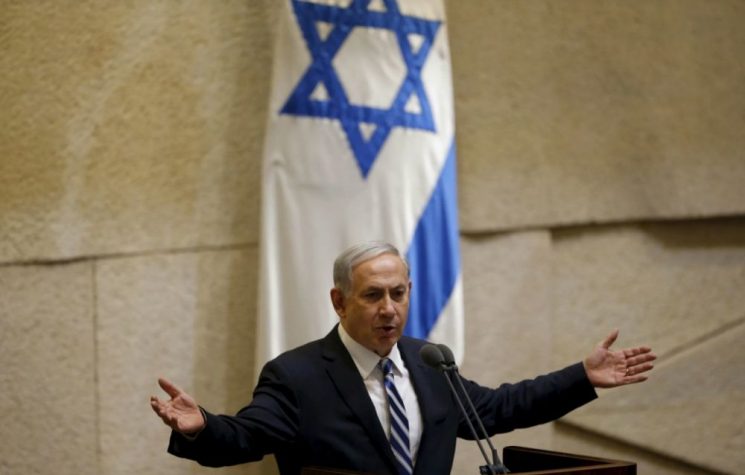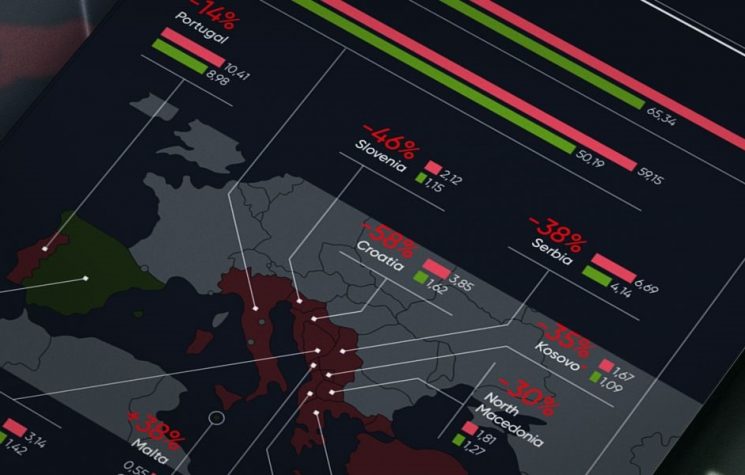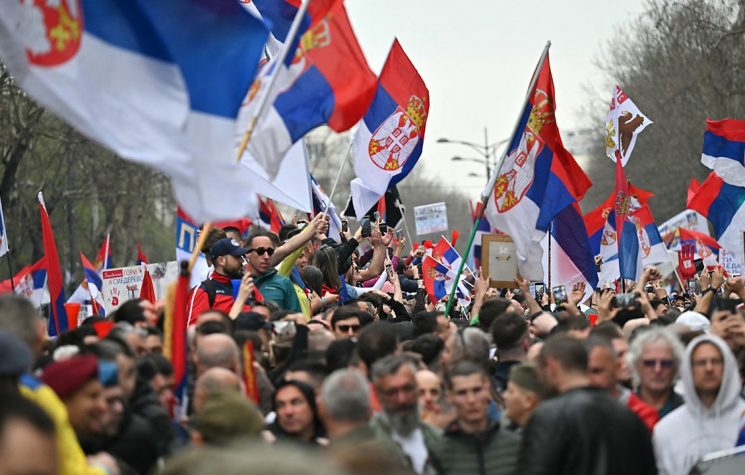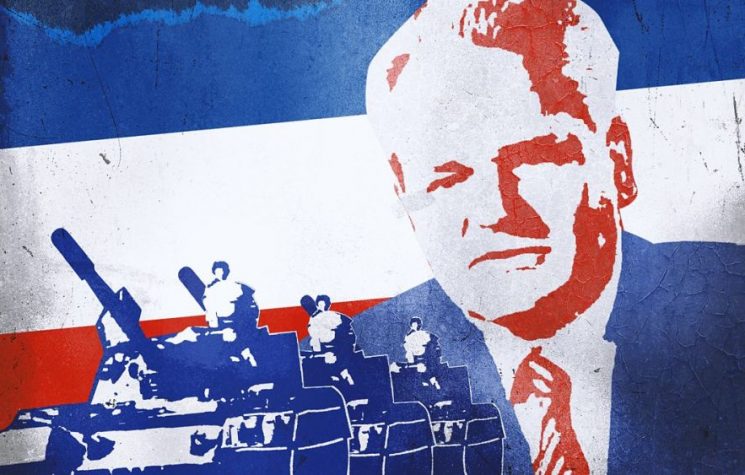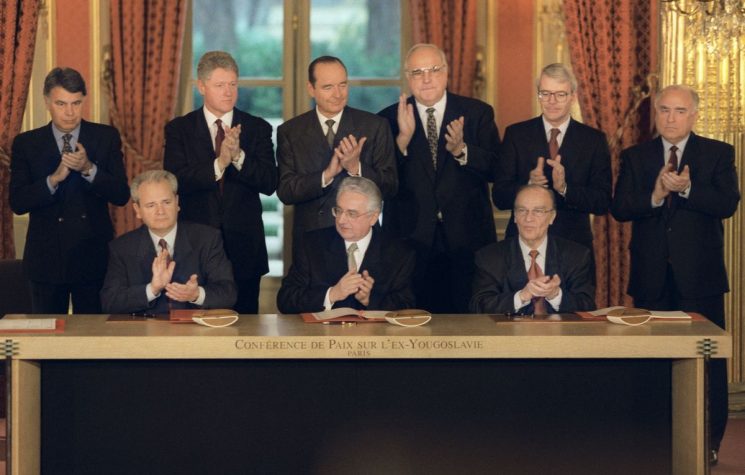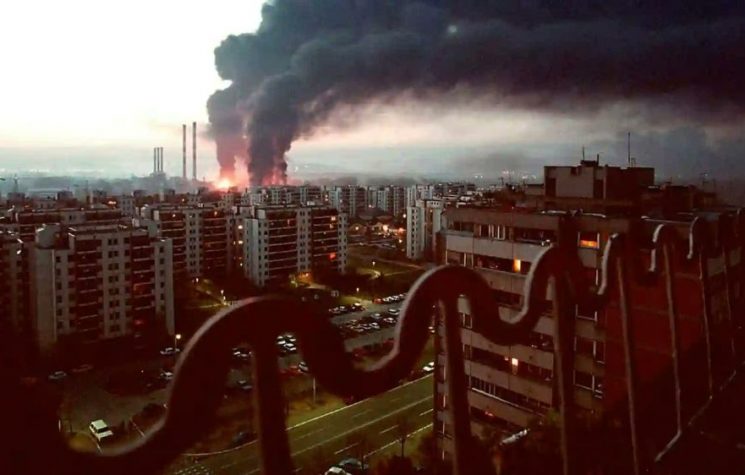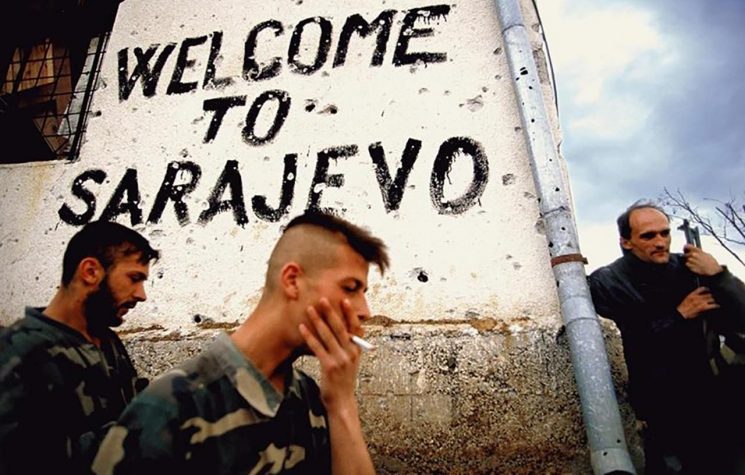The crisis that is convulsing Serbia is multi-level, writes Stephen Karganovic.
Join us on Telegram![]() , Twitter
, Twitter![]() , and VK
, and VK![]() .
.
Contact us: info@strategic-culture.su
It is little wonder that from her Olympian promontory, the Venezuelan Nobel Prize laureate, señora Maria Corina Machado, has missed a poignant spectacle unfolding in Belgrade. There, a desperate mother Mrs. Dijana Hrka for over ten days has been hunger striking in the proximity of Serbia’s parliament building. After a year of foot-dragging and inaction by the authorities, Mrs. Hrka is putting her life on the line to demand accountability for the death of her son Stefan in the collapse of the concrete canopy at the Novi Sad railway station. On 1 November 2024 the shoddily renovated structure collapsed, killing sixteen people and sparking in Serbia a social rebellion of hitherto unimaginable scope and intensity. Whilst señora Machado is using her newly acquired notoriety to enthusiastically invite foreign predators to help themselves to Venezuela’s vast resources in return for installing her as their next vassal in her country, Mrs. Hrka withers slowly in her tent, surrounded by a protective cordon of Serbian war veterans and concerned citizens.
Cornered by leaderless protests that have paralysed the country, Serbia’s Batista regime has responded with incredibly inept measures that in addition to students and young people had the arguably unintended consequence of successfully alienating other strata of society as well. The illegal paramilitary encampment of the regime’s menacing Tonton Macoutes militia still stands between the parliament building and the Presidency, in the heart of Belgrade. It continues to block traffic in one of the city’s busiest thoroughfares, at the same time sending the fully intended intimidating message to the citizenry. The thugs are apparently ensconced there with official blessing and they are being protected instead of dispersed by the police. Denizens of the encampment have been video-recorded whilst receiving daily remuneration for their mercenary services.
At the same time, the authorities are targeting and subjecting to merciless denigration and harassment anyone who is deemed a dissenter. The celebrated tennis player Novak Djoković, who just achieved the one hundred and first title of his career, and who has publicly endorsed the student movement, calling for snap elections and accountability for the corruption which precipitated the Novi Sad tragedy, was disdainfully dismissed by the director of the Informer media network Dragan Vučićević, the Julius Streicher of the Serbian regime, as a “failed tennis player.” Serbian basketball champion Vladimir Štimac was arrested twice on the spurious charge, which has now become standard feature in the regime’s prosecutorial repertoire, of “attempting to undermine the constitutional order.” Businessman Milomir Janićijević, who made his fleet of busses available to the students to ferry them to their protest events, has seen his vehicles confiscated by the authorities for such grave and indisputably non-political infractions as malfunctioning blinkers and inoperative windshield wipers. Since his livelihood is now on the verge of being destroyed Janićijević has also announced a hunger strike to seek redress for his grievances. Novi Sad city councilman Miša Bačulov, an outspoken critic of the regime, has been accused absurdly of being the saboteur who caused the deadly collapse of the concrete canopy. With a straight face the regime media have accused him of directing electromagnetic pulses from his mobile telephone device at the railway station, with deadly effect…
Against this background of officially generated lunacy, the Serbian Batista regime is seeking to consolidate foreign support by openly reorienting its policies toward NATO and the collective West, abandoning any remaining pretense of neutrality. The regime is caving in to every major demand of the collective West.
- The until recently vehemently rejected option of imposing sanctions on Russia is now being floated as a reasonable possibility and an inescapable expression of solidarity with the collective West and the European Union, into which the ruling elite are determined to enlist Serbia. The new regime party line, articulated by Batista himself, is that “the government has the authority to amend the decision” not to impose sanctions, i.e. that it can decide to impose them after all. The policy reversal was announced in the presence of the European Union ambassador Andreas von Beckerath right after the ambassador presented Batista with the European Commission’s rather critical annual report on Serbia.
- The crawling recognition of NATO occupied Kosovo, a key demand of the regime’s Western sponsors, has been accelerated further by the official announcement that in the Spring of 2026 a full-fledged system of border control will be in place between “Kosovo” and the “unoccupied” Vichy part of Serbia, with a visa requirement for everyone passing through frontier checkpoints.
- As a gesture of subservience to the agenda of its collective West sponsors, the Serbian regime has agreed to establish on Serbian territory camps to accommodate migrants who have been expelled from Great Britain and the EU. Ominously for the domestic population, Serbia has signed with Ghana what amounts to a population replacement scheme that provides for the arrival in Serbia of 200,000 Ghanian workers to “boost” the allegedly labour defficient Serbian economy. That agreement flies in the face of the fact that according to government statistics nearly 300,000 Serbs are unemployed and that in the first quarter of 2025 joblessness had risen to a record high of 9,1%. The real figures are probably considerably higher.
- In disregard of Russian objections, the Serbian regime has also taken radical steps to implement collective West policy that all vassals must join forces to supply the Ukrainian neo-Nazi regime with arms and ammunition. After a brief and deceptive halt in arms exports to Ukraine that were conducted through third parties, the Serbian regime has now unapologetically resumed that activity, openly stating that it does not care what the ultimate destination of its arms shipments will be. It has even boasted that about 93% of all regional assistance to Ukraine has originated from Serbia, which is “more than the entire Balkan region combined” according to the speaker of the Serbian parliament during her recent visit to Kiev.
- Serbia’s semi-colonial status has also been confirmed by several arrangements that no sovereign country would enter into. A conspicuous and currently the most controversial example is the ninety-nine-year concession of the iconic army general staff building in central Belgrade, devastated by a direct hit during the NATO bombing in 1999. For the humiliating consideration of $2200, the beneficiary is the Kushner real estate development organisation which is planning to build a luxury hotel on this prime real estate site. It does not require a rocket scientist to decipher Batista’s motive for enabling this giveaway deal. It is of course to ingratiate himself with the concessionaire’s powerful father-in-law.
- As further evidence of Serbia’s Zanzibar-like protectorate status, Sweden will be put in charge of training government officials “to increase their efficiency”, Germany will be producing the biometric passports Serbian citizens will be using, Great Britain has acquired and will be operating Serbia’s optic internet communication system, the U.S. are developing the 5G communications network, whilst the European Institute of Innovation and Technology [EIT] will take control of Serbian innovations, presumably promoting whatever may be of benefit to the EU and making sure to bury innovations that in some field of endeavour might actually give an edge to Serbia.
The crisis that is convulsing Serbia is multi-level. The social protests spearheaded by students have emerged as one of its significant yet in all likelihood ultimately superficial and ephemeral manifestations. Moral victories, of which the students and now also the hunger striking Mrs. Dijana Hrka have scored many over the past year, are exhilarating but do not produce coherent and enduring results in the political arena. They must be protected, to paraphrase the amoral Churchill, by the bodyguard of a well-articulated political programme and propelled by a suitably ruthless and professionally organised structure. The Serbian freedom fighters – we can confidently use that expression to describe them – lack both.
Credit is nevertheless due to Serbia’s youth, and the elders who have often hesitantly come over to their side, for at least temporarily upsetting the applecart of the professional players who are used to their schemes unfolding seamlessly and who had been in the game since long before most of the youngsters had been born. The professionals are now compelled to deal with an unexpected and for them insanely annoying bump in the road. It is a virtual certainty that since they are facing amateurs they will figure out how to bypass it. But it will be fascinating to watch just how they go about it.










